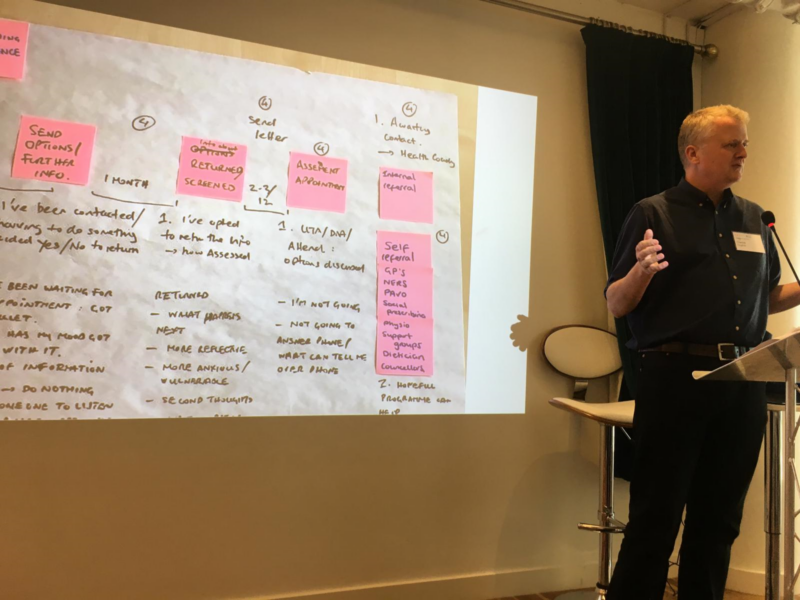- Led by the Pain and Fatigue Management Service at Powys Health Teaching Board.
- Enhancing engagement – building motivation and confidence with the aid of digital technologies: to reduce dropout rates and improve engagement by providing clear and timely access to information for potential participants referred into the Pain and Fatigue Management Service.
- The initial scoping and testing for this project took place March – October 2019.
- The next phase – with funding from the Health Foundation and NHS England/Improvement – will take place January – December 2020.
Why this project
The Pain and Fatigue Management Service in Powys runs a variety of programmes for people with persistent pain and the aim is to help people learn skills to manage their condition. Being in a rural location, they want to make sure people can access their programmes in a way that suits them, and they want people to have the choice and control to access support convenient to them, so they are more likely to engage and benefit from the service.
One of the challenges is engagement – both from referrers and potential participants. A key area of focus is improving people’s understanding of the service and the model of care, to improve experiences and outcomes. The analysis on engagement with the service showed that some people don’t engage at one of the first interactions – when they receive their initial booklet explaining their options to access the service, which can feel overwhelming to some. The team have tested their initial assumptions and worked with service users to streamline the paper information people receive through this stage of the pathway. They have also explored some of the barriers to shared decision-making and how this process can be improved.

The work so far
Based on their learning to date and user insights, the team will be developing a digital platform to improve experience and engagement with the service so potential participants have access to information as soon as they are referred, to help keep them motivated and improve future engagement with the service. They will work with developers to supplement an existing digital platform used in other pain services, with the potential for this work to be applied more widely across their wider long-term condition work.